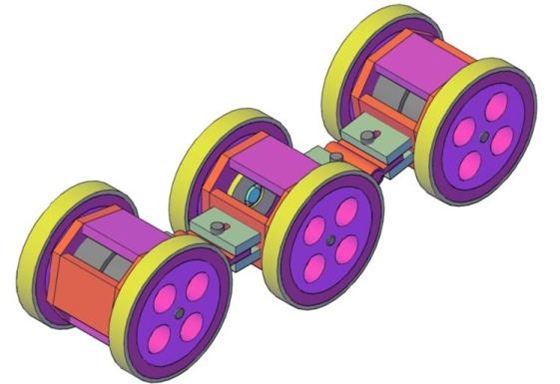Jun 13 2009
A new type of robot being developed will make it easier to detect drugs, weapons, explosives and illegal immigrants concealed in cargo containers.
Dubbed the 'cargo-screening ferret' and designed for use at seaports and airports, the device is being worked on at the University of Sheffield with funding from the Engineering and Physical Sciences Research Council (EPSRC).
The ferret will be the world's first cargo-screening device able to pinpoint all kinds of illicit substances and the first designed to operate inside standard freight containers.
It will be equipped with a suite of sensors that are more comprehensive and more sensitive than any currently employed in conventional cargo scanners.
Recent advances in both laser and fibre optic technology now make it possible to detect tiny particles of different substances. The EPSRC-funded project team is developing sensors which incorporate these technologies and that are small enough to be carried on the 30cm-long robot, in order to detect the specific 'fingerprint' of illegal substances at much lower concentrations than is now possible.
When placed inside a steel freight container, the ferret will attach itself magnetically to the top, then automatically move around and seek out contraband, sending a steady stream of information back to its controller. 
Current cargo-screening methods rely on a variety of separate methods, such as the use of sniffer dogs and external scanners for detecting explosives and drugs and carbon dioxide probes and heartbeat monitors to detect a human presence.
Cargo scanners currently in use at seaports and airports only generate information on the shape and density of objects or substances. The ferret, however, will be able to provide information on what they actually consist of as well.
"It's essential we develop something which is simple to operate and which Border Agents can have total confidence in," says Dr Tony Dodd, who is leading the project. "The ferret will be able to drop small probes down through the cargo and so pinpoint exactly where contraband is concealed."
Working prototypes of the cargo-screening ferret could be ready for testing within two years, with potential deployment within around five years.